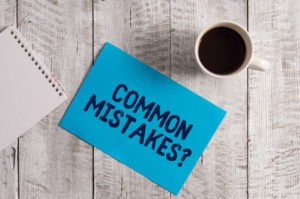Inherited Property? What You Need to Know

Many clients wonder what to do with inherited property, particularly real property like a house. There are choices, and they depend on several factors. Are there other siblings who also have inherited portions of the ownership of the house? Is there another owner who needs to be bought out? Can the heir afford to take on the responsibilities and expenses of a home? Is someone else already living there? These are all questions presented in the article “What to do when inheriting a house” from The Mercury.
There’s a tax issue to consider, for starters. Property that was titled in the name of the decedent at the time of death or is part of their estate taxable estate and then inherited, receives what is called a “step-up” in basis. This means that there is no federal tax due on the appreciation in value from the time the person purchased the home to the time that the person died. They may also be state taxes as well.
Let’s say the person bought the home for $100,000 and at the time of her death the property is worth $300,000. The federal government will not tax the $200,000 difference between the original value and the DOD (Day of Death) value of the home. If the heir obtains an appraisal shortly after the death of the home owner and then moves in or if you already live there and the house is transferred into your name, the “clock” starts running again for another tax break, which is an additional $250,000 exclusion from capital gains on resale after you have lived there for two years. If the property is sold shortly after the person’s death to a third party in an arms-length deal, the sales price would be the DOD value of the inherited property.
Now, this all assumes that any other beneficiaries have been satisfied as to the ownership of the house. A good elder law estate attorney will be able to help with the details, including the transfer of title.
Another issue: is there a mortgage on the house? If so, the new owner may need to satisfy the lender and refinance. If the heir has enough money to meet monthly payments, a strong credit rating to be able to get a mortgage and enough income to maintain the home, then it should be a relatively simple transaction.
Have the home inspected before moving in. Is the inherited property in good shape? If repairs need to be done, are they budget-friendly, or will they make the inheritance too expensive to be financially viable? Who will pay for it? The estate, the heirs, or a new owner?
Property maintenance is another consideration. If the estate can carry costs associated with the property until the property is sold and if the estate can pay for repairs, upgrades and maintenance so the house can be sold for a good price, then that is a reasonable approach to take. If there are other beneficiaries, they should all part of a discussion about how much money is worth investing in the house and what the return on investment will be.
One key concern that I’ve told countless clients over the years is decide early what to do with the inherited property, and stick with the plan. Maintaining the property is time consuming, potentially costly, carries a risk in the form of liability and may prevent the estate from making liquid distributions if it isn’t sold. Some of the worst estate administrations I’ve dealt with involved not deciding what to do with inherited property, and that lead to unnecessary cost and years of administration. So, the executor or trustee should decide earlier what to do with the property.
Finally, if the language of the will says “equally to my three children” or language similar to that and one sibling wants to buy out the other two, then an agreement on the value of the house and a plan for working out timing of the sale will need to be created. An estate planning or elder law attorney will be able to help create a family settlement agreement that will include an informal accounting, whereby all of the heirs receive their fair share of the inheritance and all sign off that they have agreed to the transaction.
Reference: The Mercury (Jan. 15, 2020) “What to do when inheriting a house”

